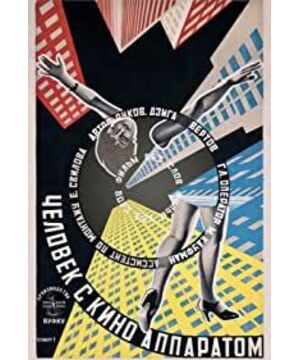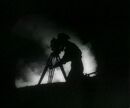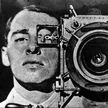Does a movie become a movie because it tells a story? Does it have characters or plots? Or take the audience into a whole new world? As an experimental film, it chronicles a day in a Soviet city. There are no actors, plot, explanatory subtitles and posing. Unlike traditional filmmaking, Kinoks' Vertov tried to make a "real film" - capturing real life, even trying to abolish all non-documentaries in pursuit of "The conquest of space, the visual linkage of people throughout the entire world based on the continuous exchange of visible fact”. He hopes to turn cinema into something universal, to achieve universality. Different from the "Symphony of the City", the film records the scenes of the audience watching the documentary. The audience enters the theater, the projector starts to work, the audience sits, and people's reactions become the content of the record. It is also interspersed with the process of editing videos and combining narrative materials, so it not only records life itself, but also discusses the filming process of documentaries. Reality constructionism, the camera restores life, and editing creates a universal language. Although the life scenes are real and objective, it must be admitted that the subjects are subjectively chosen. That is to say, this is still an individual world constructed by the subjective idea of the filmmaker, who brings us from the objective image into the subjective narrative.
View more about Man with a Movie Camera reviews







